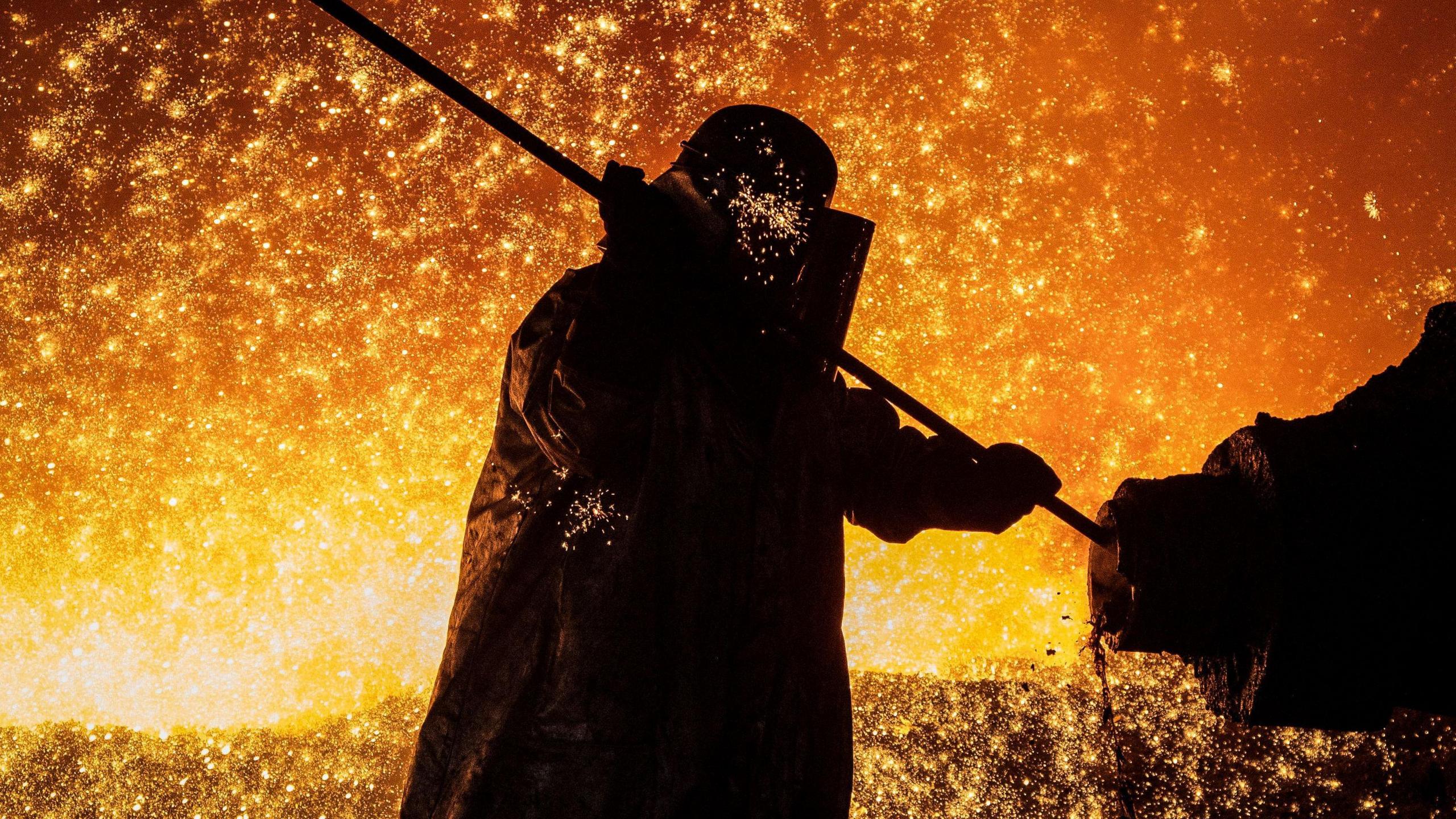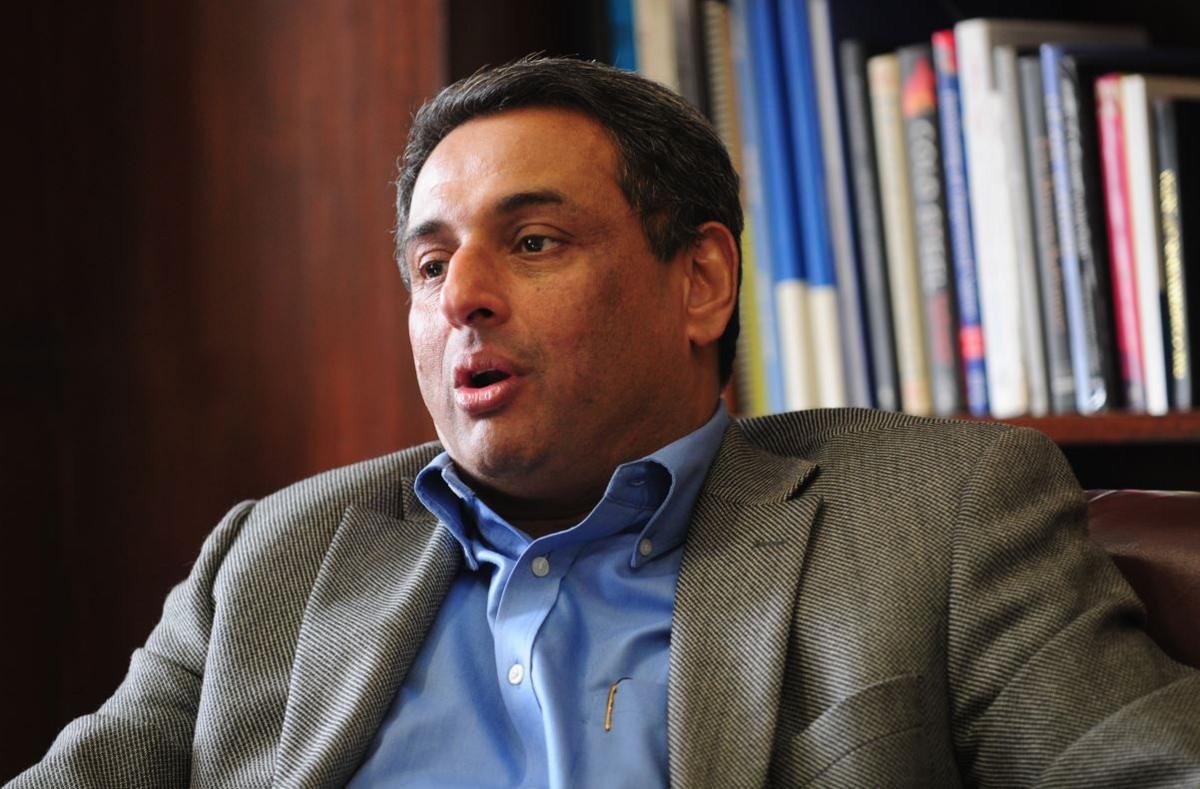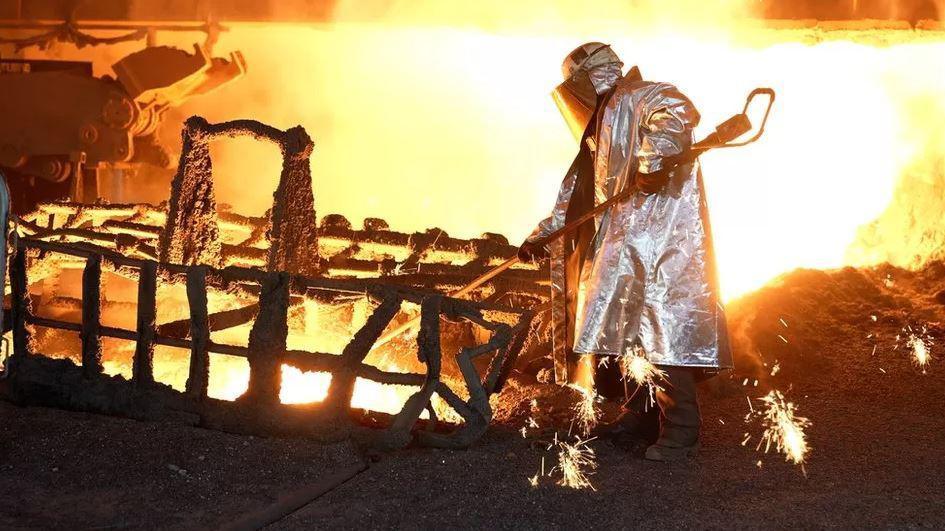Q&A: Tata Steel's decarbonisation plans

- Published
The UK government has agreed to invest up to £500m to help the steelworks at Port Talbot to be decarbonised, but this will risk 3,000 jobs across the UK.
Tata Steel which has owned the plant since 2008, will invest £700m of its own money into the plans.
The plans involve switching from using blast furnaces powered by fossil fuels to electric arc furnaces which can be powered by using renewable energy. Instead of producing virgin steel, the plant would produce recycled steel.
However, critics say the quality of the steel produced will be a lower grade and can impact on manufacturers who rely on virgin steel.
Who owns Tata Steel?
Tata Steel is owned by the Indian conglomerate Tata Sons.
The company says 66% of the equity share capital of Tata Sons is held by philanthropic trusts, which support education, health, livelihood generation, and art and culture.
How many people are employed by Tata Steel?

Tata Steel's managing director TV Narendran has promised that workers will be consulted about the deal
Tata Steel employs about 8,000 people in the UK. About 4,000 of those are based in Port Talbot.
The UK government has said the deal will only safeguard about 5,000 jobs out of Tata's workforce.
Union leaders have expressed their anger at being shut out of talks between Tata and UK government and described the deal as a "disgrace".
Now that the deal has been confirmed Tata Steel's chief executive and managing director, TV Narendran has promised that a consultation would take place.
He said: "We will undertake a meaningful consultation with the unions on the proposed transition pathway in the context of future risk and opportunities for Tata Steel UK.
"With the support of the UK government and dedicated efforts of the employees of Tata Steel UK along with all stakeholders, we will work to transform Tata Steel UK into a green, modern, future-ready business."
What is decarbonisation?
Decarbonisation means the reducing of green house gas emissions produced by burning fossil fuels.
These contribute to climate change.
Steel is usually made in a process that starts with blast furnaces. Fed with coking coal and iron ore, they emit large quantities of carbon dioxide and contribute to global warming.
The production of steel is responsible for around 7% of the world's greenhouse gas emissions.
The UK government said replacing the four existing coal-powered blast furnaces at the Port Talbot site would "reduce the UK's entire carbon emissions by around 1.5%".
It is also a legal requirement to decarbonise under the UK government's net-zero plan as well as in keeping with its international obligations under the Paris Agreement.
The Climate Change Committee has suggested the UK government "set targets for ore-based steelmaking to reach near-zero emissions by 2035".
Meanwhile energy analysts said the upfront costs of changing to recycling rather than investing in hydrogen-powered virgin steel were cheaper.

Blast furnaces are powered by burning coal which produces greenhouse gases
How are other countries decarbonising steel?
There are are currently 38 green steel projects in progress across the EU, nine of which are in Germany.
No country is yet producing steel using green hydrogen, though Germany has one plant using blue hydrogen, meaning the gas is made from fossil fuels.
The UK has one project in the pipeline on the Humber which would use blue hydrogen.
What is an electric arc furnace?
Electric arc furnaces rely on scrap metal as a source, melting it down to form recycled steel.
They come with their own enormous demands on energy, but their backers argue sustainable energy sources such as wind mean they can be a clean method of producing steel.
Scrap metal is also in plentiful supply, with the UK being a net exporter.
Opponents of electric arc say they cannot produce the same grade and quality of steel - sometimes known as virgin steel - as a blast furnace site.
Critics also say their installation in Port Talbot could threaten other steel plants such as packaging manufacturers who may no longer be able to source the metal they need.
All four coal furnaces at Port Talbot are approaching the end of their lifespan and must be replaced.
Why produce virgin steel?
Aside from retaining more jobs, energy analysts say the Port Talbot plant should be converted to green hydrogen-produced virgin steel because there is a growing demand for it in cars, construction and other industries central to the modern economy.
In the drive to net zero, manufacturers are increasingly wanting to source materials produced without carbon emissions.
Switching away from fossil fuels could also lower production costs by untying from increasingly volatile international markets, energy experts said.